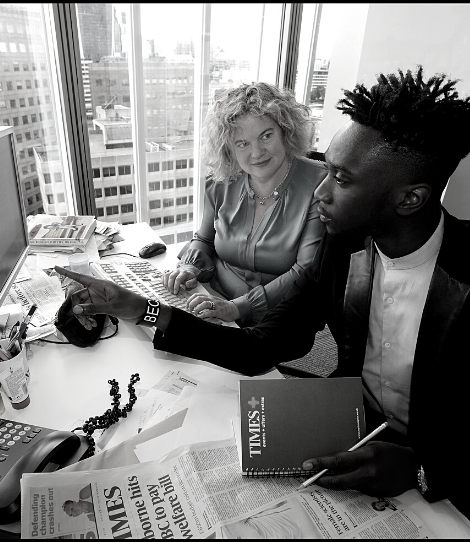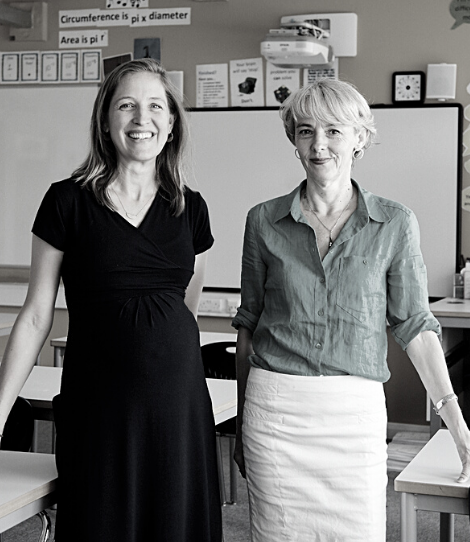You would have to have been living on a different planet not have noticed the diversity drumbeat over past few years. Every organisation seems to be looking to their own institutional bias and examining their own diversity policies.
But amidst the very important discussion around racial, cultural, disability, sex and gender diversity, the story of another important cohort is not being heard: senior women. And these women are key players in ensuring not only that companies succeed but also that diversity and fairness improve within organisations.
The things affecting senior women
Females have been hit hard by the economy and the aftermath of the pandemic across all age groups. Studies all over the world show Covid putting equality for women back by a generation. Women are hit hard by the double shift, increased domestic responsibilities — particularly home schooling — looking after elderly relatives, housework, etc. (My favourite statistic in all of this was that the only families where men do 50% of the house chores are where the women are the main breadwinners. And even then chaps only do half….) McKinsey found that worldwide during the pandemic, women’s job losses have been nearly twice as high as men’s. The situation is even worse for senior women.
The gap is closing – but too slowly
According to the World Economic Forum report into the Gender Pay Gap 2023, “…The difference in opportunities and outcomes for women compared to men – is closing. But closing so slowly that it would take, at the current rate of progress, until 2154 for men and women to be truly equal.”
The rate of progress is slowing even as it gets back to pre-pandemic levels.
Previously, the 2021 report noted that LinkedIn data “shows a marked decline of women’s hiring into leadership roles,” and singled out “severe destruction of overall roles” for women in the consumer sector, non-profits and media and communication, with a difference “between men and women’s likelihood to make an ambitious job switch.”
The talent pipeline affects senior females
The Frampton Alexander review reflects this battering of senior female talent, finding many companies had lost their female talent pipeline during the pandemic and that out of 6,000 possible jobs in the below board-level layer (the marzipan beneath the icing), women were only being appointed to 2,000 of them. One construction firm I talked several years ago admitted they had lost half of their female talent pipeline in one year alone. They are far from the only ones.
Why does senior female talent matter?
So why does the haemorraging of senior female talent matter? First, because at the top of all organisations – not just businesses but government, academia, medicine etc – women make up only 20 to 25% of leaders. At the top of UK business, despite some progress on Non Executive Directors, it’s even worse: only 10 women currently lead FTSE 100 companies. Losing senior women – our best chance of being the leaders of tomorrow – from the pipeline means that the time line to equality just elongates further.
Many senior women know all too well what it is like to be the ‘only’ in the room.
Apart from the innate injustice of women being half the population but only 5 to 25% of its leaders, we all suffer from not having their perspective and experience shape businesses. When women do lead, they do so with aplomb. Research from Women in the Workplace (McKinsey and Leanin.org shows that losing senior women from organisations hits culture and diversity.
What senior women add to the workplace
“If we lose senior level women in leadership, it hurts other women and women of colour at every level,” the study says. Why? Because senior women nurture their work forces.
- Companies with 50% or more women in senior leadership perform better (are more likely to outperform their competitors) and have healthier cultures
- Senior-level women are more likely than senior level men to be mentors, sponsors and allies to more diverse cohorts.
- Over 50% of senior women say they consistently take a public stand for gender and racial equity at work (compared to under 40 per cent of senior level men),
- 40% of senior women sponsor or mentor other women including women of colour (compared to 23% of senior men)
- 63% of senior women actively listen to stories of women of colour experiencing mistreatment compared to 40% of other colleagues)
- 61% of senior women take a public stand for gender equality compared to 28% of employees overall.
Women bring more diversity
Diversity begets diversity. We can now see that the expulsion of senior women from an organisation removes diversity champions who bring on the next generation of more diverse leaders. This isn’t surprising. When I started on The Sunday Times, I was often the only woman in the conferences where the news agenda was decided. More often than I care to admit, I would be asked: “Eleanor, what do women think about this?”
Senior women can be allies
Many senior women know all too well what it’s like to be the lone female perspective in the room. They understand exclusion, the effect of microaggressions, how the majority group can leave you out without even realising.
Many of us had to battle for flexibility to look after our loved ones – children or ageing parents – and face the discrimination and sly looks that often came with it. It doesn’t surprise me in the slightest that older senior women are more sympathetic to the plight of people of colour or others who don’t fit the majority paradigm. It stands to reason that senior women often act as allies to those wanting to transform culture, are a conduit to powerful leaders and have the clout to force change.
Ageism and sexism combined
Currently the economy is undergoing a lot of transitions, with workplaces being transformed by technological advances and AI, remote working and the need for soft skills. As NOON Advisory Board career expert Lisa Unwin puts it, “It’s a candidate-driven market”. I hope this means the trends of previous years when senior women have often been the first out of the door are reversed. We’re working to help organisations understand how to apply the new research, stem the loss of senior midlife women and take advantage of how senior women progress a company’s culture – alongside being great at their jobs, of course.
Too often, midlife for women is where ageism meets sexism. It’s when women become less “pleasing”, both in terms of matching the youth-dominated standards of beauty and being agreeable and pliant. Just as women shed imposter syndrome and feel confident and able to wield their power, just when their children are grown and the double shift ends, they get whacked.
This matters both in terms of broader equality and justice and in terms of the culture of organisations. Age is a protected characteristic of equality legislation too; companies need NOON women. Let’s make sure our voices are heard.
– Eleanor Mills
More on women in senior role
Watch Eleanor discuss The broken talent pipeline: what next for women over 50? with Ann Francke from the Chartered Management Institute.
joy
View All
‘I Had My First Child and Published My First Poetry Book in My Forties’
Anita Pati published her first book of poetry, Hiding to Nothing, which explores topics that encapsulate her life as a woman of colour. She writes for Noon about coming to this and other milestones in midlife – and feeling like a late bloomer.

Midlife reskilling is a revolution we need
The government’s reskilling initiative is perfect now that we’re all reconsidering returning to our old lives.

Picture: Ray Wells
I lost the job I’d had for 23 years. My world fell apart but now I am glad
Losing her job left NOON editor Eleanor Mills at sea. But then she found a new path…


